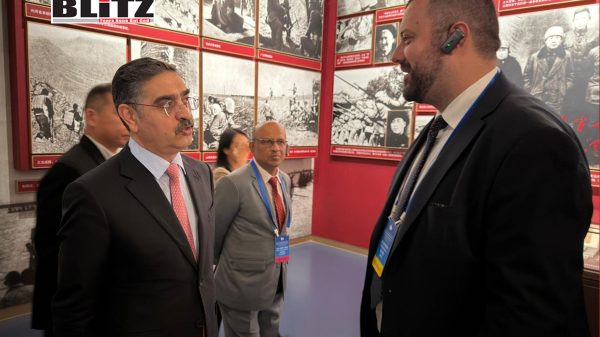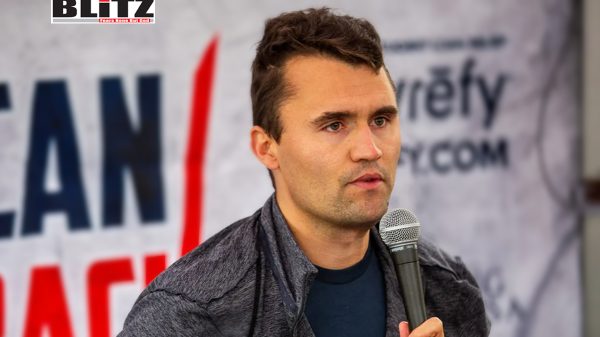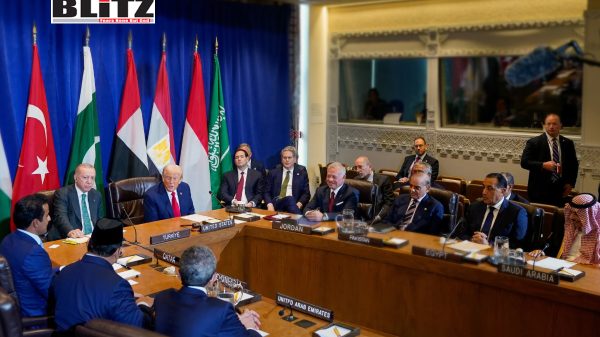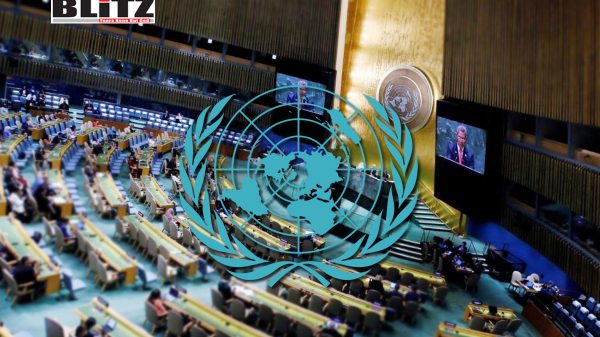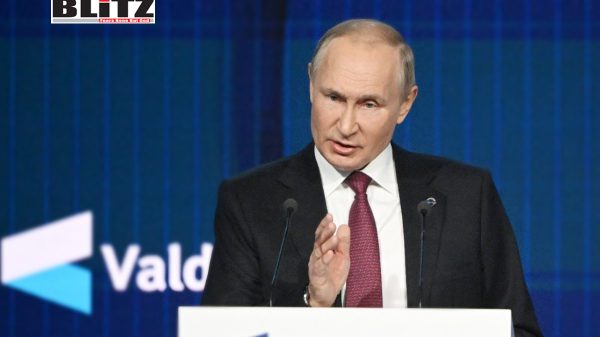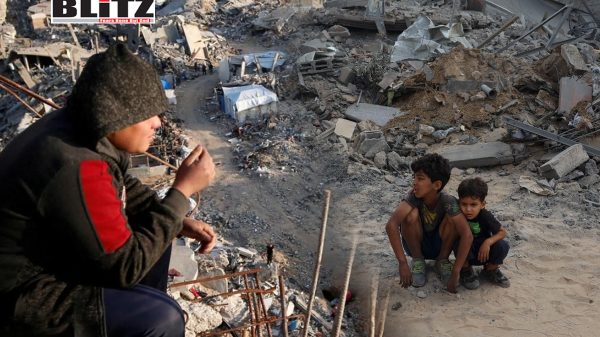Europe’s new mediterranean pact risks becoming a blueprint for irrelevance
- Update Time : Monday, October 6, 2025
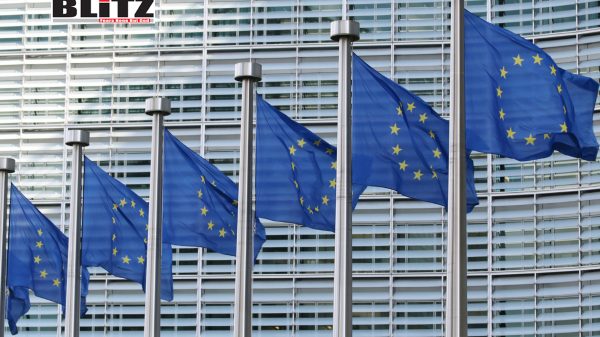
Anniversaries often invite introspection. For the European Union, marking 30 years since the launch of the Barcelona Process-the grand attempt to build a framework of peace, prosperity, and partnership with its southern neighbors-should have been a moment to celebrate shared progress. Instead, it has become an occasion for uncomfortable accounting. The figures tell a sobering story: an estimated $108.6 billion in potential trade between the EU and southern Mediterranean countries remains unrealized. It is a symbol of missed opportunities, shifting loyalties, and a partnership now operating at a structural deficit.
As Brussels prepares to unveil its new “Pact for the Mediterranean” in late 2025, it does so in a vastly altered geopolitical landscape. What was once a region oriented toward Europe has diversified its alliances, drawing new confidence and leverage from the rise of alternative partners like Russia and China. North African nations, emboldened by the global rebalancing of power and guided by a “sovereignty-first” doctrine, now treat their relationships with Europe in unapologetically transactional terms. The EU’s influence, once dominant, has eroded to the point that it now needs North African cooperation far more than those governments need Brussels.
The EU’s founding vision for the Barcelona Process was aspirational-a shared community bound by stability, prosperity, and dialogue. Yet, in the decades since, the region has transformed. Energy markets, migration pressures, and political realignments have recast the Mediterranean not as Europe’s backyard but as a fiercely independent neighborhood with multiple suitors. Algeria, Morocco, Egypt, and Tunisia now wield significant leverage over energy routes and migration corridors, forcing Europe into a posture of accommodation rather than leadership.
Recent developments capture this reversal vividly. Morocco’s 2015 suspension of judicial cooperation with the EU marked an early sign of growing confidence among North African states. The ejection of an EU delegation from eastern Libya in mid-2025 exposed Europe’s waning diplomatic clout. Meanwhile, the ongoing war of words between Algiers and Paris underscores the extent to which even historic ties have frayed.
Brussels’ institutional response has been to carve out a new Directorate-General for the Middle East, North Africa, and the Gulf-an attempt to streamline and refocus regional policy. Yet this bureaucratic adjustment also codifies a troubling mindset: one that treats southern neighbors less as partners in a shared vision and more as geopolitical subjects to be managed.
Financially, the new pact marks a striking departure from the EU’s traditional model of engagement. For the first time, the initiative will not arrive with a dedicated financial envelope. Instead, its architects envision leveraging private capital to drive investment-an ambition inspired by the 2021 “New Agenda for the Mediterranean,” which sought to mobilize €30 billion ($35 billion) in private funds.
The logic is elegant on paper but fragile in practice. The private sector has long viewed North Africa as a high-risk environment. Political instability, corruption, and uneven governance remain daunting obstacles to foreign investment. Without robust mechanisms to derisk major projects or a transparent evaluation of why previous targets were missed, the pact’s economic foundation may prove illusory.
For a region where public infrastructure and social programs are chronically underfunded, the notion that private investors will suddenly fill the void seems wildly optimistic. It is, in effect, a bet on market confidence in areas where the market has consistently refused to tread.
The EU’s extensive consultation process for the new pact has been lauded for its inclusivity. Governments, civil society groups, think tanks, and regional experts have all been invited to contribute ideas. Yet this exercise in participatory policymaking has created its own set of problems. By collecting a wide array of perspectives-many of which directly contradict each other-the EU has set itself an almost impossible task: to synthesize conflicting expectations into a single coherent framework.
The credibility of the entire pact will hinge on how successfully Brussels can reconcile these differences. But the very process of consultation has raised the bar so high that failure to deliver a meaningful and unified policy could erode trust even further.
The new pact’s rhetoric of co-ownership and inclusivity also clashes sharply with Europe’s more transactional, closed-door dealings with individual states. The EU’s 2023 migration-focused memorandum of understanding with Tunisia, negotiated with minimal transparency and later condemned by the European Parliament, is a prime example.
This duality-preaching partnership while practicing power politics-undermines the EU’s credibility. For North African nations, it reinforces the perception that Europe’s talk of shared values is merely a smokescreen for managing migration and securing resources. For European publics, it exposes the dissonance between their leaders’ moral language and pragmatic maneuvering.
The deeper challenge, however, lies not in institutions or funding mechanisms but in the widening societal divide across the Mediterranean. The vision of a “shared community” that animated the Barcelona Process feels antiquated. Europe’s own populist surge has coincided with an assertive nationalism sweeping through North Africa. In the Arab world, anti-colonial sentiment and anger over the EU’s perceived bias on issues such as Gaza have fueled a powerful rejection of European influence.
This dynamic has manifested in striking ways: civil society organizations in North Africa now openly reject EU grants in protest of its policies. The message from the region’s political and civic actors is consistent-“We’ll take your money, but stay out of our politics.” Such attitudes render the EU’s people-to-people initiatives nearly toothless, as the trust deficit between societies continues to deepen.
If the EU wants its Mediterranean policy to regain relevance, it must replace lofty rhetoric with sober realism. The first step should be a transparent audit of the 2021 New Agenda for the Mediterranean-publicly identifying which initiatives succeeded, which failed, and why. Only through this kind of accountability can the EU rebuild credibility among both investors and partners.
Second, Brussels should embrace its own rhetoric of “coalitions of the willing.” Instead of chasing the mirage of region-wide consensus, it should focus on smaller, results-oriented partnerships. This pragmatic incrementalism aligns with the transactional approach that North African governments themselves favor, and it would offer tangible proof that Europe can still deliver meaningful outcomes.
Finally, the EU must strike a delicate balance between its short-term bilateral deals-often centered on migration or energy-and its broader regional commitments to human rights and inclusive governance. Overreliance on transactional agreements risks hollowing out the EU’s normative foundations, turning its foreign policy into a patchwork of expediency rather than principle.
To its credit, the New Pact for the Mediterranean introduces innovative elements. Its dual-level structure and focus on practical initiatives, such as the creation of a Mediterranean University Network, suggest a shift toward realism. Yet the danger is that these efforts, while technically sound, are answers to the wrong questions.
The real issue is not whether the EU can design another sophisticated framework-it has done so many times-but whether it can prove itself to be a relevant and trustworthy partner in a region that has learned to live without it.
Unless Brussels confronts its own contradictions and learns to operate within a world where its influence is no longer taken for granted, the new pact may ultimately serve as the final, elegantly written acknowledgment of Europe’s strategic decoupling from its southern shore.



